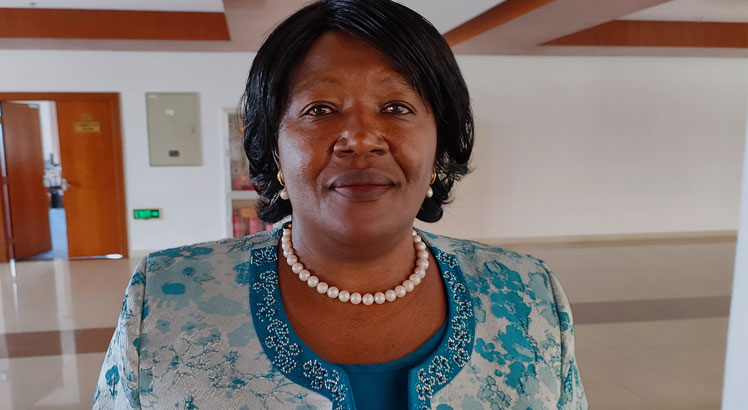Admarc maize stock drying up
Agricultural Development and Marketing Corporation (Admarc) on Thursday said it has exhausted the maize it had in stock in the Central and Southern regions.
The State grain produce trader, however, said the North still has some maize in stock.

Both Admarc acting general manager Ethel Zilirakhasu and Secretary for Agriculture Dixie Kampani confirmed the development on Thursday.
Zilirakhasu said: “Government gave us 27 600 MT of maize mid last year. We have sold over 20 000 MT and we are remaining with less than 7 000 MT in stock.
“The challenge is that the stock is mainly remaining in the North as in the Central and Southern regions, stocks have been exhausted.”
However, she said Capital Hill has moved in swiftly to provide them with additional maize sourced from the National Food Reserve Agency (NFRA) which will be sold in the various Admarc selling points.
“The good thing is that we have been given another stock. I have to check how much tonnage we have been given,” said Zilirakhasu.
But Minister of Agriculture Sam Kawale last Tuesday said the ministry was finalising transactions for the transportation of about 60 000MT of maize from strategic grain reserves to Admarc depots.
Kampani said the Treasury has since released K407 million towards transportation of the grain from NFRA to Admarc selling points.
He said: “Treasury has released about K407 million to Admarc. The funds are towards the transportation of the maize to various markets.
“This maize which has been released is the one which was earmarked for price stabilisation.”
He explained that the committee that approves the draw-down of strategic grain reserves will soon be meeting to provide additional maize for Admarc to distribute to markets.
“The maize will be in addition to the maize Admarc earmarked for price stabilisation,” said Kampani.
Last month, Zilirakhasu told Parliament that the parastatal was also banking on the Malawi Government and the World Bank to finalise processes to acquire the maize held under collateral by commercial banks to flood the markets and stabilise prices.
During that meeting, Public Accounts Committee of Parliament vice-chairperson Nicholas Dausi urged Admarc to ensure that its nationwide markets have maize stocks to enable a majority of Malawians purchase the grain.
He said people are dying of hunger as such, every effort should be made to ensure that Admarc markets have maize.
Dausi said: “You have a daunting task to ensure that there is maize throughout the country. Our concern is crystal clear, people are suffering when Admarc is there.
“There is not even a single kilogramme [kg] in those rural areas and yet you say Admarc’s role is price practical to establish another development fund, adding that councillors and MPs must learn to coexist peacefully coexist to foster development.
In recent years, councillors have been pushing the central government to consider them in managing CDF.
MPs on the other hand, have vehemently refused such a proposed arrangement which has over the years resulted in bad blood between the public elected officials.
Malawi Local Government Association executive director Hadrod Mkandawire in a telephone interview on Thursday backed the councillors demand on honoraria, saying they need fair compensation
security etc.”stabilisation, food
Earlier, agriculture policy analyst Tamani Nkhono-Mvula observed that institutions like Admarc help the government to control the market by releasing maize at a time when it is in short supply.
He said: “What institutions like Admarc do is that in situations where maize prices are going up, they supply maize on the market at reasonable prices.
“In the absence of Admarc, there is no means and ways for the government to release maize on the market.”
Last year, government increased the price of maize in Admarc depots from K205 to K300 per kilogramme (kg), meaning a 50kg bag of maize was going at K15 000.
However, this year, maize prices have been on the rise, moving from an average of K9 500 per 50 kg in February to about K30 000 per 50 kg bag.
Maize, as part of the food component, has a huge weight at 45.2 percent in the consumer price index, which is an aggregate basket of goods and services that National Statistical Office uses in computing inflation.
This means any change in the price of maize has a direct bearing on the inflation, currently at 24.5 percent, and the wider economy.





